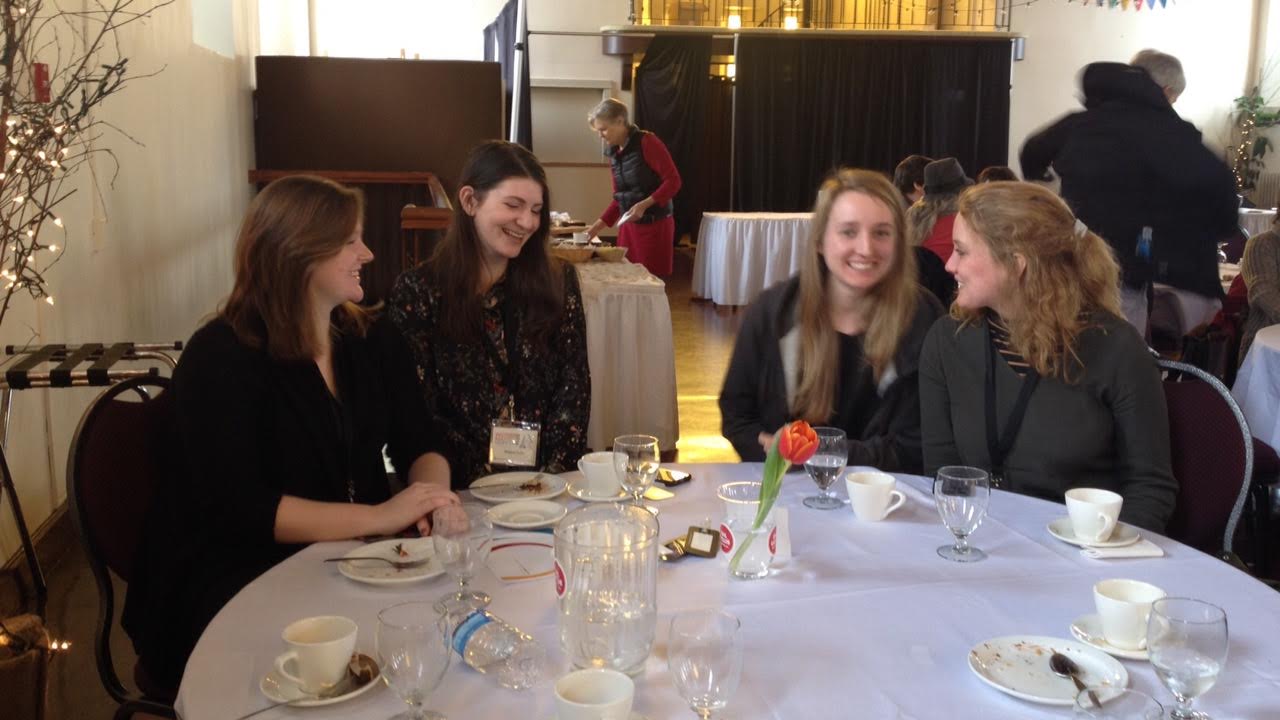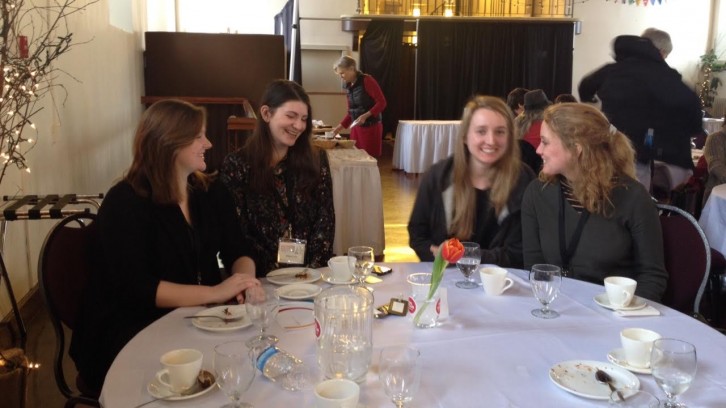Film
Women filmmakers encourage next wave
New program introduces women to filmmaking

caption
New Waves participants Michelle Cuthbert, Brianna Dunn and Maddie Kingston with New Waves coordinator Katie Godfrey
caption
New Waves participants Michelle Cuthbert, Brianna Dunn and Maddie Kingston with New Waves coordinator Katie Godfrey.In tandem with the Women Making Waves conference last weekend, Women in Film and Television Atlantic (WIFT) kickstarted a new program called New Waves, a workshop series designed to teach young women about making films.
“We tried to cover all of the bases as far as getting a sense of what it means to make a film from start to finish and what the roles are,” said WIFT events and member services co-ordinator Katie Godfrey, who worked on developing New Waves.
New Waves offers five workshops from March through April to nine participants between the ages of 18 and 30. The first one was held last weekend during the annual Women Making Waves conference in Halifax.
Each workshop focuses on a different element of filmmaking: directing, producing, production management, writing and technical and on-set skills. New Waves also offers mentorship to its participants.
“I am really excited to meet lots of business people with similar interests, similar aspirations. I’m just excited to learn a lot about the industry, and do a lot of hands-on work,” said Brianna Dunn, one of the members of New Waves.
One of the Women Making Waves events that the New Waves participants attended was a keynote address by Rina Fraticelli, National Film Board of Canada producer, and founder and executive director of Women in View. Women in View is a not-for-profit research organization that focuses on gender in Canadian media.
“We can’t have a culture if we don’t have diverse culture. We can’t have Canadian culture if it’s not balanced,” Fraticelli said on Saturday afternoon.
New Waves encourages young women to work in film in order to bridge the gender gap in the industry.
“Statistically there are still less women who are involved in the various roles, whether it’s any aspect of the filmmaking, the production itself or beyond,” said Godfrey.
In the 2013-14 fiscal year, women represented only 17 per cent of writers, directors and cinematographers in Canadian films funded by Telefilm Canada, according to a report Women in View published last October.
Women also represented 17 per cent of directors for TV series funded by the Canada Media Fund. These women directed only 11 per cent of episodes. Women held 38 per cent of television screenwriting positions and did not hold any television cinematography positions.
“Those exclusionary trends are that much more important because it’s not just about those of us who are not getting a chance to do what we want to contribute to the industry and to the culture, but it’s about the entire society that’s not getting the benefit of all of those points of views,” said Fraticelli.
New Waves aims to provide its members like Dunn with a platform to share their points of views. Dunn studies creative writing at Dalhousie University and applied to New Waves because she wanted to learn about screenwriting.
“Being a woman writing, or in the pre-production stages of a film, you can write female characters in a more interesting way,” said Dunn.
“To be able to breathe life into women that appear on the screen and then have them tell more interesting stories, I think, is really important because that’s what people are going to see.”
This is the first year for New Waves, but Godfrey hopes that it becomes a yearly program.
She also hopes that after completing the program, New Waves participants “are making their own projects, that they are utilizing the relationships that they made during the program and that they become a really strong part of the women in film and television community.”

